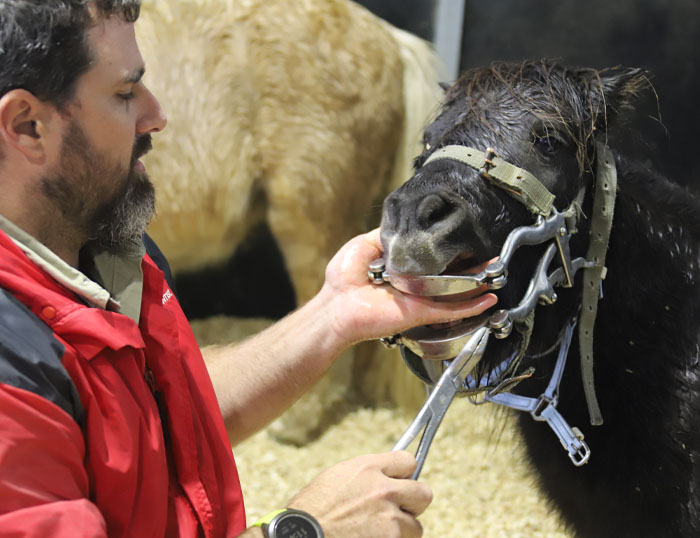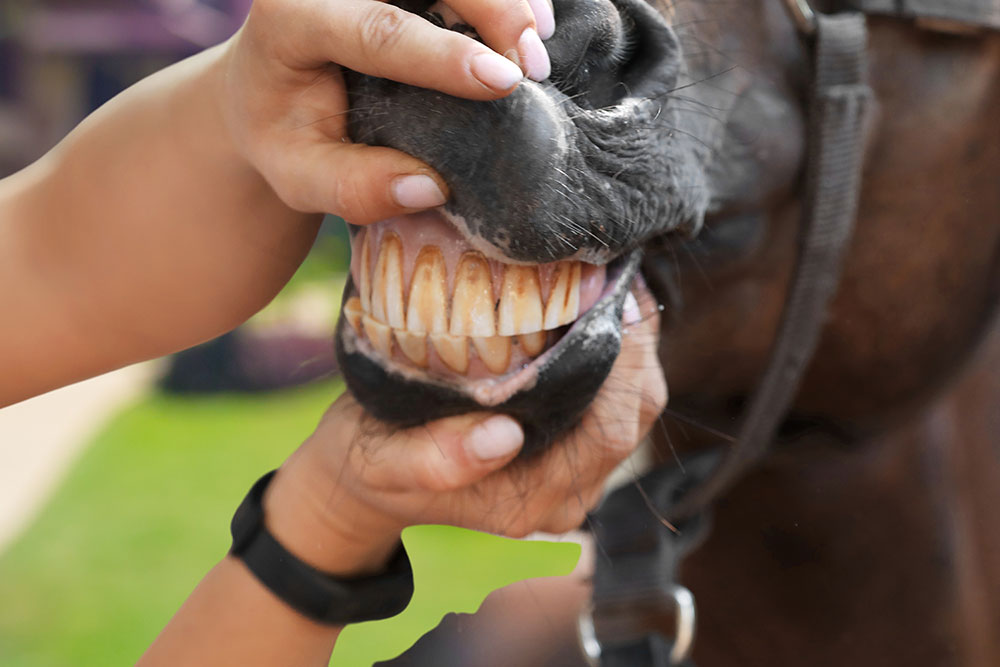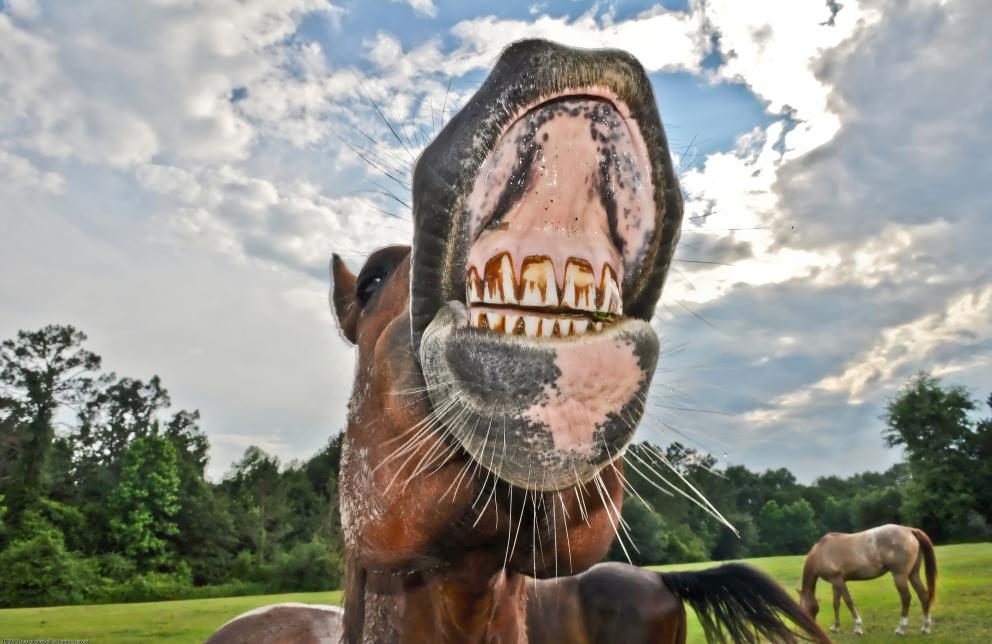For horse owners, understanding the intricacies of equine dental care is crucial for maintaining their horse’s overall health and well-being. The importance of regular dental check-ups cannot be overstated, as they play a significant role in preventing oral diseases and ensuring that horses can eat comfortably and efficiently. In this article, we explore frequently asked questions about horse dental care, providing insights and guidance for owners who are keen to keep their equine companions healthy.

Why Is Dental Care Important for Horses?
Dental care is crucial for horses because it directly affects their ability to chew food properly. Improper chewing can lead to digestive issues, weight loss, and even behavioral problems due to discomfort. Regular dental check-ups help in identifying and addressing issues such as sharp enamel points, which can cause ulcers on the cheeks and tongue.
How Often Should Horses Have a Dental Check-Up?
It is generally recommended that horses have a dental check-up at least once a year. However, young horses, seniors, and those with known dental issues may require more frequent visits. Regular check-ups can help in early detection and treatment of potential problems.
What Are the Signs of Dental Problems in Horses?
Common signs that your horse may have dental issues include difficulty eating, drooling, weight loss, bad breath, and head shaking. If you notice any of these symptoms, it’s essential to consult with a qualified equine dentist.
Are There Special Considerations for Senior Horses?
Yes, senior horses often require more frequent dental evaluations, as they are more prone to dental issues such as loose teeth and excessive tooth wear. Ensuring a soft and easily digestible diet can also help accommodate any dental difficulties they may face.
How Are Horse Dental Exams Conducted?
During a dental exam, a veterinarian or equine dentist will typically use a speculum to open the horse’s mouth and examine the teeth and gums. They may also use mirrors and lights to get a better view of the oral cavity. For more detailed information on what to expect during a dental exam, you can visit this horse-mouth-exam-checklist.
What Is Teeth Floating and Why Is It Necessary?
Teeth floating is the process of filing down sharp enamel points that develop on the horse’s teeth. This procedure is necessary to prevent discomfort, ulcers, and other oral issues. Floating should be performed by a professional to ensure it is done safely and effectively.
How Can Diet Affect My Horse’s Dental Health?
A balanced diet is essential for maintaining good dental health. Diets that are too high in sugar or lack adequate fiber can contribute to dental problems. Providing plenty of roughage, such as hay or grass, helps promote natural chewing patterns and wear down teeth appropriately.
What Are Common Dental Problems in Horses?
Common dental problems include sharp enamel points, uneven wear, fractured teeth, and periodontal disease. Regular dental check-ups can help in identifying these issues early, allowing for timely intervention.
Can Dental Issues Affect My Horse’s Performance?
Yes, dental issues can significantly impact a horse’s performance. Discomfort from dental problems can lead to reluctance to accept the bit, head tossing, and other behavioral issues during riding. Addressing dental health is essential for optimal performance.
Should I Consider Dental Care Before Buying a Horse?
Yes, a pre-purchase dental exam is advisable to identify any existing dental issues that may require costly treatments. Ensuring that a horse has a healthy mouth before purchasing can prevent future complications. More details can be found in this horse-dental-exam-before-buying.
How Do I Choose a Qualified Equine Dentist?
Choosing a qualified equine dentist involves checking their credentials, experience, and reviews from other horse owners. It’s also beneficial to ask for recommendations from your veterinarian or equine community.
Are There Preventative Measures for Maintaining Dental Health?
Yes, preventative measures include providing a balanced diet, ensuring access to fresh water, and scheduling regular dental check-ups. Following these steps can help maintain your horse’s dental health and overall well-being.
What Role Do Genetics Play in Dental Health?
Genetics can play a role in dental health, as certain breeds may be more prone to specific dental issues. It’s essential to be aware of any breed-related concerns and discuss them with your equine dentist.
How Does Dental Health Affect a Horse’s Overall Health?
Poor dental health can lead to various systemic issues, including digestive problems and weight loss. Ensuring good dental health is integral to maintaining a horse’s overall health and longevity.
Are There Special Dental Care Considerations Post-Surgery?
Yes, post-surgery dental care may involve specific diet modifications and follow-up exams to ensure proper healing. For more information on post-surgery care, you can refer to this dental-care-post-surgery.

FAQ Section
How often should a horse’s teeth be floated?
Most horses require teeth floating once a year, but some may need it more frequently, depending on their dental condition.
Can I perform dental checks on my horse myself?
While you can perform basic checks, such as observing eating habits and behavior, professional dental exams should be conducted by a qualified equine dentist.
What can I do to prevent dental issues in my horse?
Preventative measures include maintaining a balanced diet, ensuring access to fresh water, and scheduling regular dental check-ups.
For more in-depth information on equine dentistry, you can visit this comprehensive resource on equine-dentistry from Best Friends Animal Society, a trusted source for pet care information.
This article contains affiliate links. We may earn a commission at no extra cost to you.
